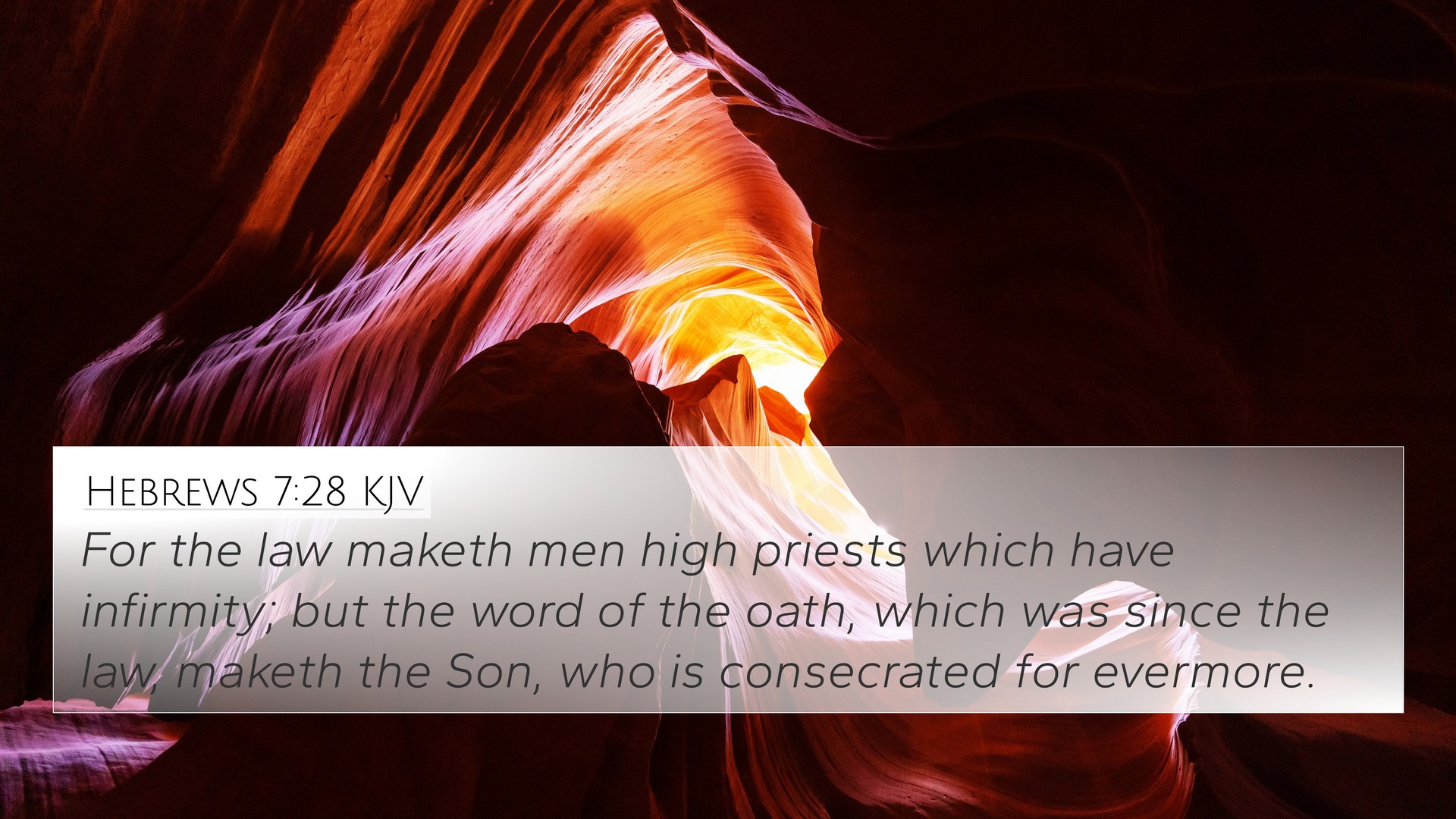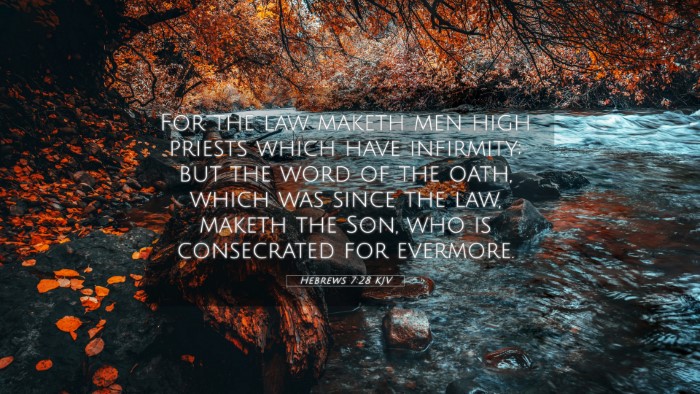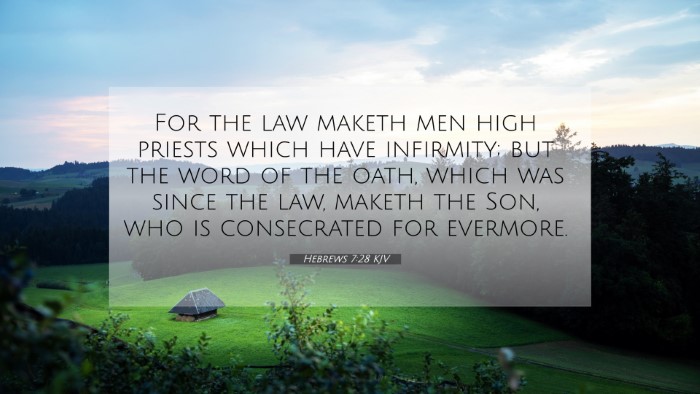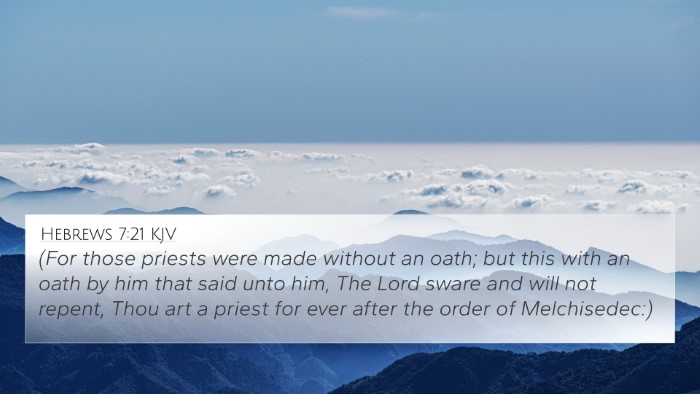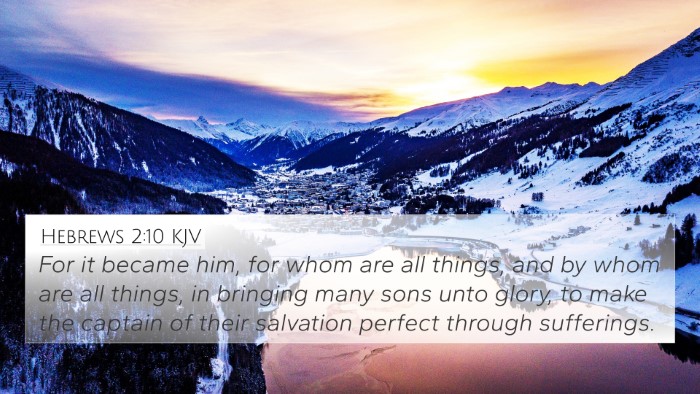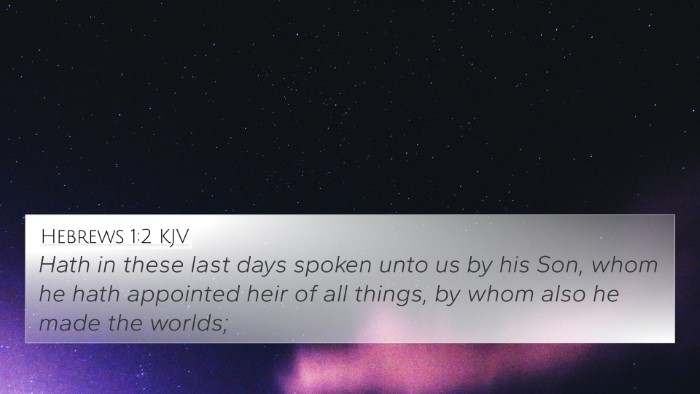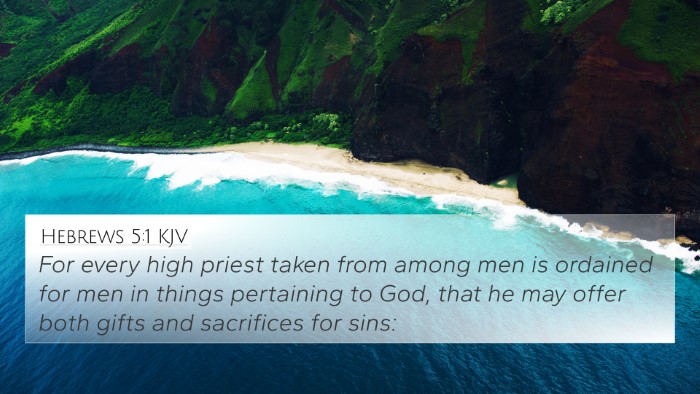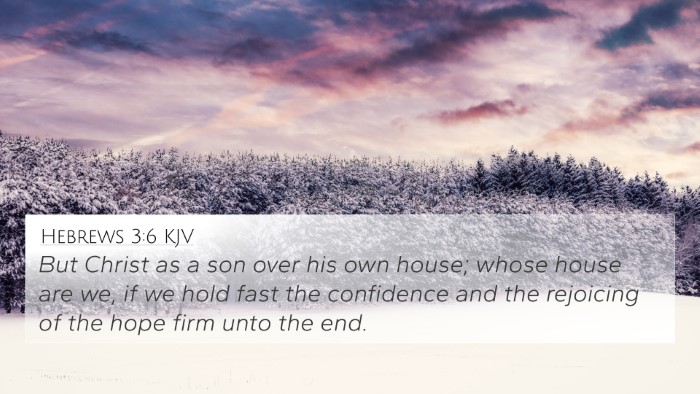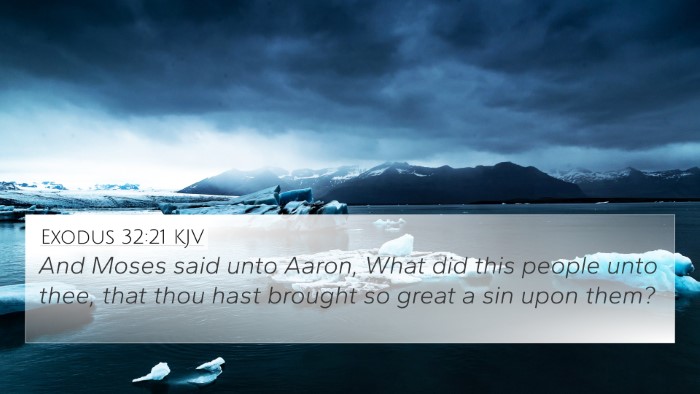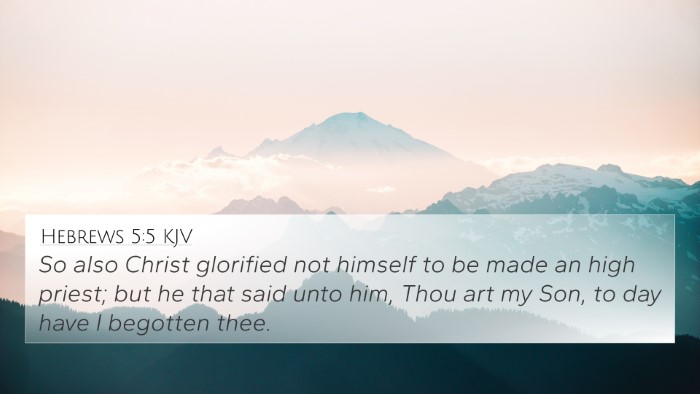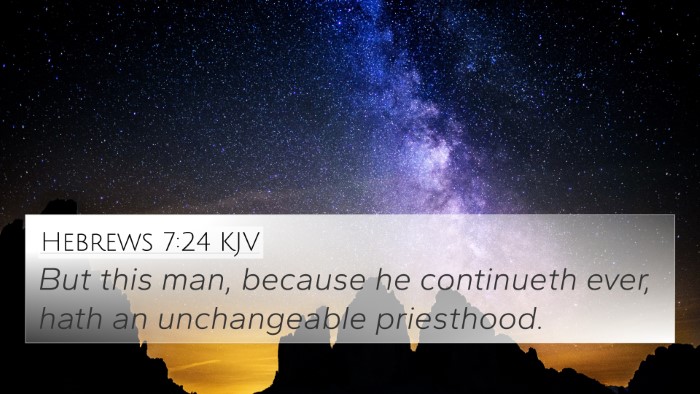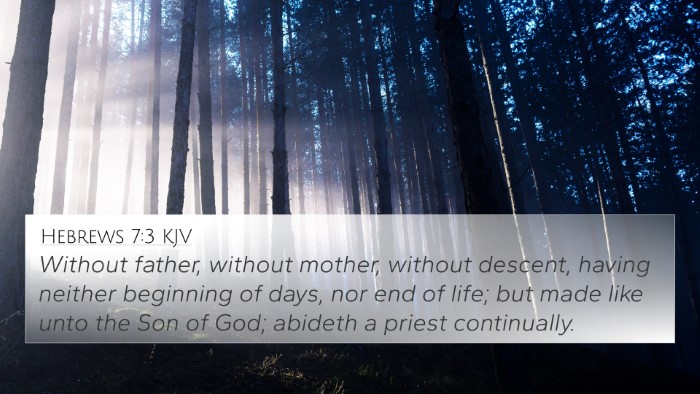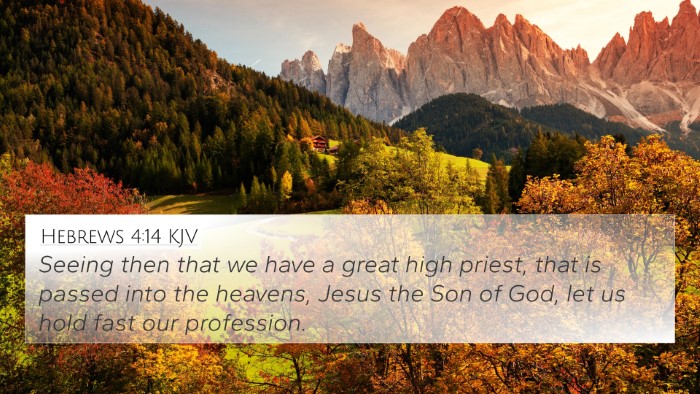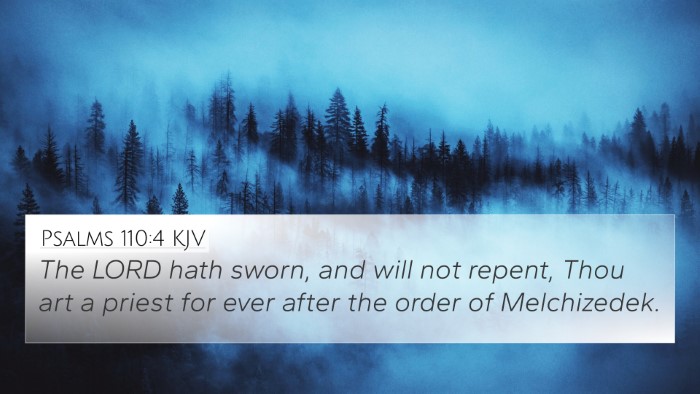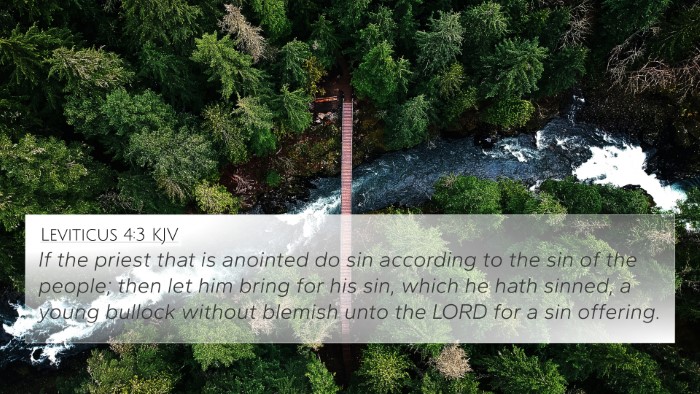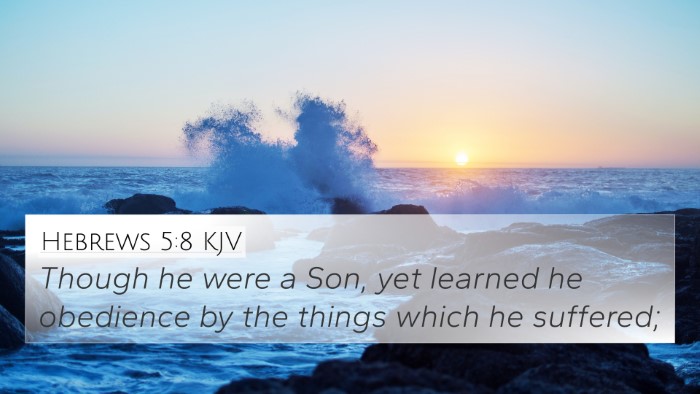Understanding Hebrews 7:28
Hebrews 7:28 states: "For the law appoints men as high priests who have weakness, but the word of the oath, which came after the law, appoints the Son who has been perfected forever." This verse highlights the contrast between the Levitical priesthood and the eternal priesthood of Jesus Christ. The author of Hebrews intricately compares these two roles to affirm the supremacy of Jesus as the ultimate mediator between God and humanity.
Summary of Insights from Commentaries
- Matthew Henry: Henry emphasizes the distinct nature of Christ's priesthood compared to the Old Testament priests. He notes the frailty and sinfulness of earthly priests, while Christ, appointed by the divine oath, is perfect and everlasting in His role.
- Albert Barnes: Barnes discusses the implications of the "oath" mentioned in the verse. He explains that the priesthood determined by God’s promise and oath elevates Christ’s authority and role, contrasting it with the temporary nature of the Levitical priesthood.
- Adam Clarke: Clarke elaborates that the perfection of Christ stems from His unique capacity to offer Himself as a sacrifice, thus fulfilling the requirements of the law and establishing a new covenant.
Theological Implications
The verse underlines several theological themes:
- Christ’s Divine Appointment: His role isn’t based on human lineage (as with Aaron) but is established by God's sworn declaration.
- Eternal Priesthood: Unlike Levitical priests who served temporarily and died, Christ's priesthood is eternal, making Him the perfect mediator.
- Perfection Through Suffering: His completion through trials emphasizes His capability to understand human frailty while embodying divine perfection.
Cross-References
Hebrews 7:28 connects with several significant Bible verses that enhance understanding through scriptural cross-referencing:
- Psalm 110:4: "The Lord has sworn and will not change his mind: 'You are a priest forever, in the order of Melchizedek.'" This verse establishes the eternal nature of Christ’s priesthood.
- Hebrews 5:6: "And he says in another place, 'You are a priest forever, in the order of Melchizedek.'" This aligns with Christ’s unique priestly order.
- Hebrews 4:15: "For we do not have a high priest who is unable to sympathize with our weaknesses, but one who in every respect has been tempted as we are, yet without sin." This shows Christ's perfect understanding of humanity.
- Romans 8:34: "Who is to condemn? Christ Jesus is the one who died — more than that, who was raised — who is at the right hand of God, who indeed is interceding for us." This highlights Christ’s ongoing intercessory role.
- 1 Peter 2:5: "You yourselves like living stones are being built up as a spiritual house, to be a holy priesthood, to offer spiritual sacrifices acceptable to God through Jesus Christ." This verse connects believers to Christ’s eternal priesthood.
- Matthew 26:28: "For this is my blood of the covenant, which is poured out for many for the forgiveness of sins." This relates to the new covenant established by Christ's sacrifice.
- Hebrews 10:14: "For by a single offering he has perfected for all time those who are being sanctified." This reflects Christ’s sufficiency as the perfect sacrifice.
Exploring Connections Between Bible Verses
To fully grasp the depth of Hebrews 7:28, it is essential to explore the connections to other verses. This can be aided by various tools for Bible cross-referencing, such as concordances and cross-reference guides, which allow for a deeper, thematic study.
Comparative Bible Verse Analysis
Engaging in comparative Bible verse analysis, particularly between the Old Testament laws and the New Testament principles, furthers the understanding of the transformation that Christ brings. Tools for Bible cross-referencing help in identifying these profound links and thematic connections.
Conclusion
Hebrews 7:28 invites believers to appreciate the unparalleled role of Jesus Christ as their eternal High Priest. Through understanding the verse within its context and exploring its connections with other Scripture, one can fully appreciate the richness of biblical themes surrounding redemption and intercession.
